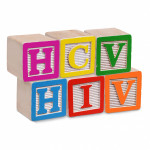Shortening the standard 12-week regimen of Epclusa (sofosbuvir/velpatasvir) to just six weeks for those recently infected with hepatitis C virus (HCV) is associated with an unacceptably high rate of viral relapse after the end of therapy.
That’s according to a recent study presented by Gail Matthews, PhD, of the Kirby Institute at the University of New South Wales in Australia, at the 2020 Conference on Retroviruses and Opportunistic Infections in Boston last week.
The REACT study was a randomized controlled trial comparing a six-week (short) Epclusa regimen with a 12-week (standard) regimen among people who contracted HCV within the past 12 months, including people who inject drugs and people with HIV coinfection. The participants were randomized evenly into the two treatment arms.
The study was operated out of 24 sites in eight Western countries. It was set to enroll 250 people, but the randomized design was discontinued early when it became clear that the shortened regimen was associated with a higher rate of viral relapse compared with the standard regimen. At that point, anyone who had been randomized to the six-week regimen and was still taking Epclusa was switched to the 12-week regimen.
The final analysis included all 192 people who were randomized, including 93 people in the short treatment arm and 99 people in the standard treatment arm. (Four other people were not included in the analysis because they were in the middle of their six weeks of treatment when the randomization of the study was canceled.)
Of those included in the analysis, 96% were men, and 69% had HIV coinfection. The median age was 43 years old. Eighty-three percent were white, and 4% were Asian. Twenty-one percent contracted HCV via injection drug use, and 72% did so through sex between men.
Ninety-one percent of participants in both the six- and 12-week treatment arms achieved a sustained virologic response 12 weeks after completing therapy, considered a cure. However, nine people (9%) in the short treatment arm experienced a viral relapse, compared with just two (2%) in the standard treatment arm.
When the study authors excluded from the analysis non-virologic reasons for a lack of a cure, including being lost to follow-up (five people), death (two people) and reinfection with HCV (five people), the cure rate was just 89% in the short treatment arm, compared with 98% in the standard treatment arm.
Just one person in the study discontinued treatment. Ninety-three percent of the participants took more than 90% of their Epclusa doses.
The study authors concluded that a shortened Epclusa regimen is associated with too high a rate of viral relapse to be feasible for those recently infected with HCV.
To read the conference abstract, click here.







Comments
Comments